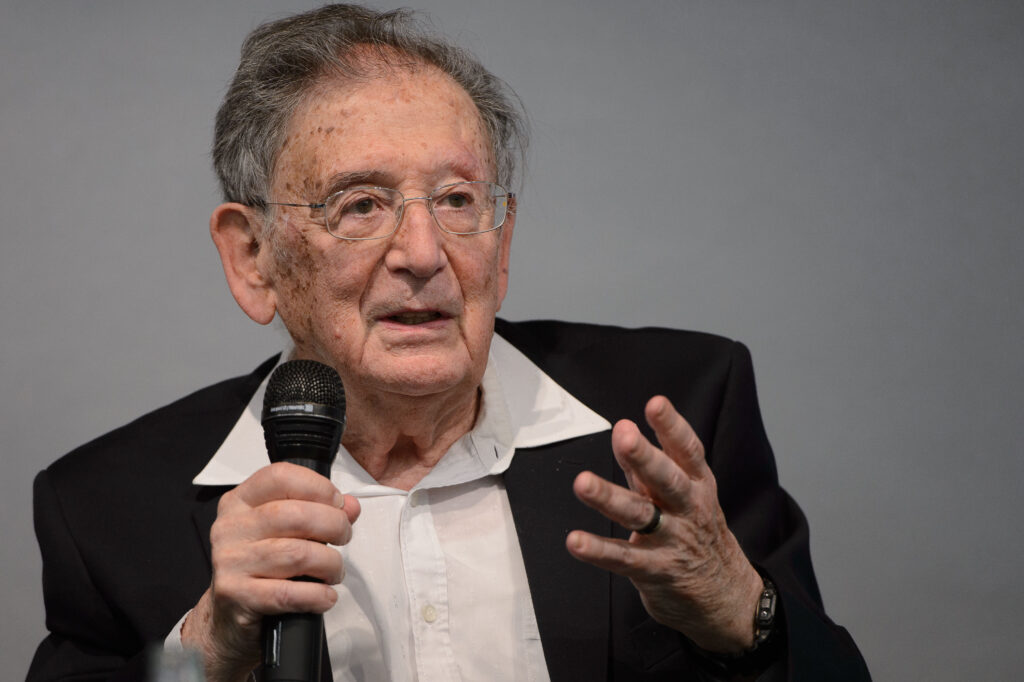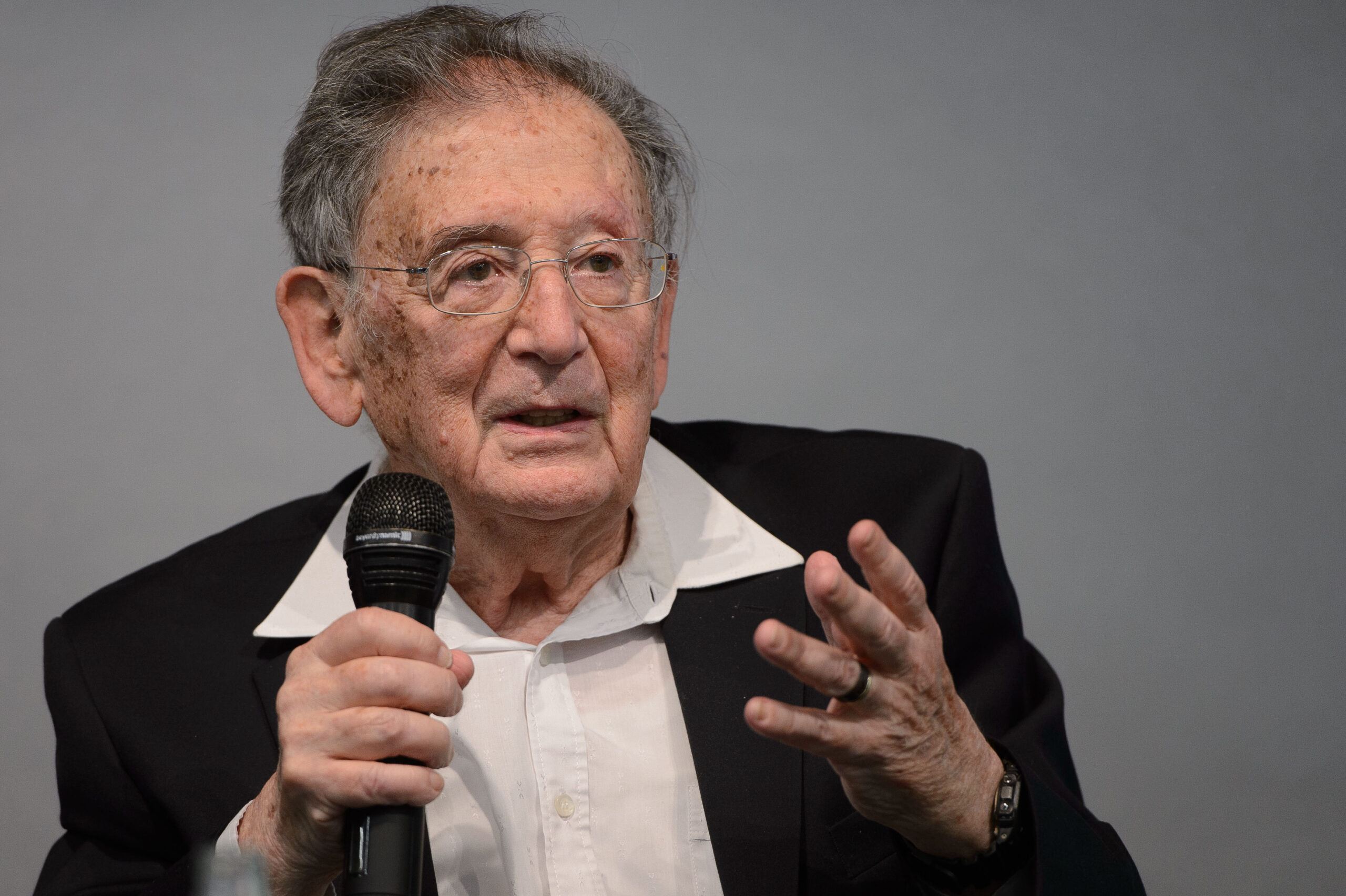
Yehuda Bauer, perhaps the world’s foremost living historian of the Holocaust, and a recipient of the Israel Prize, passed away last week at the age of 98.
His achievements in the field of Holocaust scholarship are legendary, authoring over 40 academic works on the subject. According to his obituary in AP, Bauer spoke “Czech, Slovak, German, Hebrew, Yiddish, English, French and Polish, and learned Welsh while studying at Cardiff University in Wales. His mastery of languages allowed him to study source material in its original form and connect directly with audiences across the world.”
Bauer was a key proponent of the idea of the Holocaust being the most extreme form of genocide in human history. While acknowledging the parallels of the Holocaust to other genocides, Bauer powerfully articulated the unprecedented nature of the Holocaust – its ideology, its global reach, and its intended destruction of the entire Jewish people.
But now that the Holocaust happened, Bauer warned, “everything done by humans can be repeated by humans—never in exactly the same way, to be sure, but in very similar ways.”
Thus perhaps Bauer’s most famous formulation: ““Thou shalt not be a victim, thou shalt not be a perpetrator, but, above all, thou shalt not be a bystander.”
One of the many examples of Bauer’s ability to speak frankly and plainly about controversial subjects related to the Holocaust, was concerning the role of Pope Pius XII during WWII. Bauer was critical of the Pope for not issuing a message condemning the extermination of Jews by Nazi Germany during the war, even if it may not have stopped the murders.
“It wouldn’t have saved a single Jew, but he might possibly have saved his soul,” Bauer observed.
Bauer was a key figure in the formation of the International Holocaust Remembrance Alliance (IHRA), and helped formulate the “Working Definition of Antisemitism”. The definition includes prominent references to Israel in its understanding of antisemitism (including, for example, “denying the Jewish people their right to self-determination, e.g., by claiming that the existence of a State of Israel is a racist endeavour”)
Regarding youth visits to Poland, Bauer criticized those trips that did not sufficiently prepare the students in advance of the trip, and did not include meetings with Polish youth, or visits places where Jews lived in pre-war Poland. (While there is some variation among communities, March of the Living programs generally incorporate most of these elements in their programs.)
Not only was Yehuda Bauer a world-renowned historian, he was a gifted storyteller with the ability to touch the hearts of the general public in the non-academic world.
“Richard and I for many years have always felt blessed to know him. His kindness and compassion were matched by his unsurpassed and unparalleled knowledge,” said Phyllis Greenberg Heideman, International March of the Living, “Learning from him was an experience to cherish. He was our keynote speaker at the launch of the Heideman Fellows program at the United States Holocaust Memorial Museum….an event we will long remember.”
I had the privilege of studying under Yehuda Bauer, many years ago at Yad Vashem, and personally interviewing him for one of my Holocaust initiatives.
I can still hear his sweet and melodious voice imparting stories and lessons from the Holocaust – which will linger on long after his parting in my memory, and in the memory of the many thousands of students whose hearts he so deeply touched.
יהי זכרו ברוך
By Eli Rubenstein, Educational Director, International March of the Living









